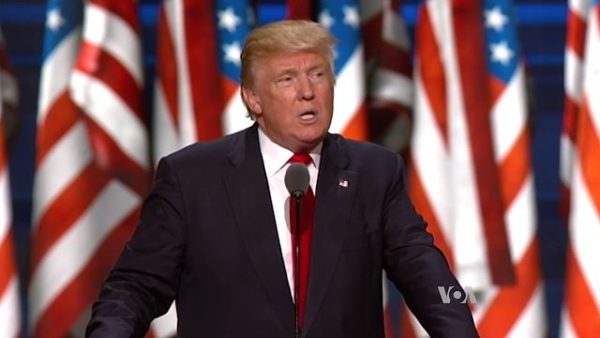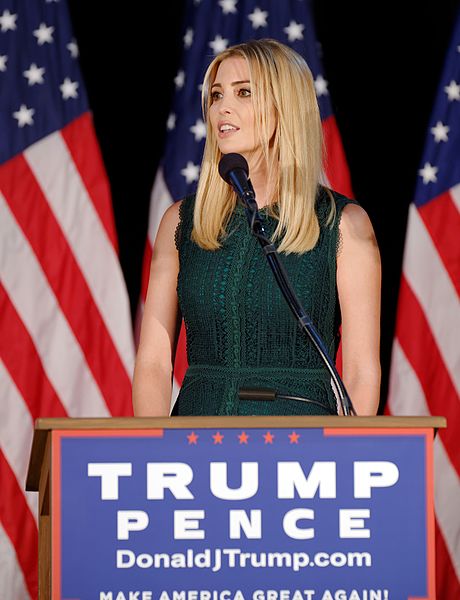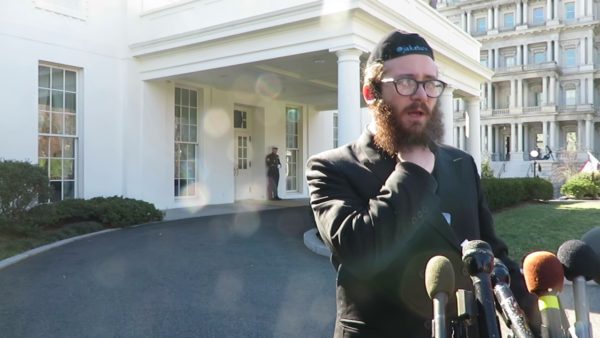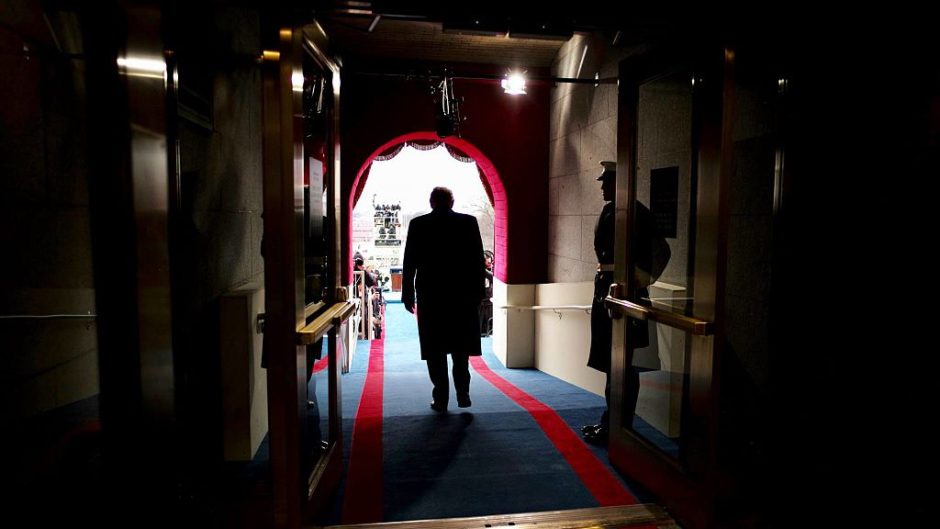
Presiden Donald Trump finally did the right thing.
He condemned antisemitism unequivocally after studiously avoiding the topic.
Just hours before Trump issued a belated denunciation of antisemitism on February 21, Hillary Clinton, his opponent in last November’s presidential election, urged him to speak out against it after more than 170 graves were vandalized at a Jewish cemetery in St. Louis, Missouri.
Trump’s first public denunciation of antisemitism occurred during his visit to the National Museum of African American History and Culture in Washington, D.C. He declared: “The antisemitic threats targeting our Jewish community and community centres are horrible, and are painful, and a very sad reminder of the work that still must be done to root our hate and prejudice and evil.”
He added, “We have to fight bigotry, intolerance and hatred in all its very ugly forms.”
These were fighting words, but Trump addressed the issue only less than 24 hours after his beloved daughter Ivanka — a convert to Judaism who’s married to Jared Kushner, Trump’s son-in-law and senior advisor — called for “religious tolerance.” On the same day, Trump’s deputy press secretary, Lindsay Walters, denounced “hatred and hate-motivated violence of any kind.”

Trump’s clumsy encounter with the topic began on February 16 at a joint press conference with Israeli Prime Minister Benjamin Netanyahu. When an Israeli journalist asked Trump to respond to reports that American Jews were concerned that his administration was soft on xenophobia and racism, he went off on a tangent. Instead of putting their fears to rest, he boasted of the size of his Electoral College victory in the presidential election. Trump went on to say that he has Jewish friends, that his daughter, Ivanka, and her husband are Jewish, and that he has “beautiful” Jewish grandchildren. “You’re going to see a lot of love,” he said in what appeared to be a non sequitur.
During this press conference, Netanyahu acted as Trump’s protector-in-chief, shamefully dismissing a question from a reporter about the surge in antisemitic sentiment in the United States. Netanyahu then claimed “there is no greater supporter of the Jewish people and the Jewish state” than Trump.
The following day, an ultra-Orthodox Jewish reporter openly sympathetic to Trump, Jake Turx, asked Trump how he would deal with the upsurge of antisemitism in light of a rash of bomb threats against Jewish community centres across the country of late. When Turx added he did not believe Trump was personally antisemitic, Trump, for some strange reason, went ballistic.
“It’s not a simple question, not a fair question,” he said angrily. “I am the least antisemitic person that you have ever seen in your entire life.”

When Turx said he believed him, Trump careered out of control again. “Quiet, quiet, quiet,” he shouted, telling Turx to sit down.
Trump’s odd behavior prompted Israeli Justice Minister Ayelet Shaked to step in. Addressing a meeting in Jerusalem of the Conference of Presidents of Major Jewish Organizations, Skaked asked how delegates felt about the rising tide of antisemitism in the United States and whether Israel could be of some help.
Taking his cue from her, Stephen Seiden, chairman of the JCC Association of North America, said, “Anything Israel can do to convince our new president to address the issue head-on, that antisemitism is a problem, to acknowledge it, I think would go a long way.”
In closing, Seiden said the bomb threats have “created fear” in the hearts of “many of our members.”
These fears are hardly misplaced.
In the past five weeks, Jewish community centres in Birmingham, Alabama; Albuquerque, New Mexico; Buffalo, New York; Houston Texas; Chicago, Illinois; Tampa, Florida; Nashville, Tennessee; Cleveland, Ohio; Tulsa, Oklahoma; St. Paul, Minnesota, and Whitefish Bay, Wisconsin have been the targets of bomb threats. “Since the beginning of this year, we’ve seen four waves of these threats — we’ve never seen that before,” said David Posner of the JCC Association of North America.
According to the Southern Poverty Law Centre, an organization dedicated to combating racism in the United States, the incidence of hate crimes has been on the rise for the past two years, and the election of Trump has “energized” racists.
Let’s be clear.
Trump is not an antisemite, but until his long overdue statement on antisemitism yesterday, he seemed to downplay or tolerate it, as the record shows.
During the presidential campaign, he initially hesitated to condemn David Duke, a former Ku Klux Klan leader and antisemitic propagandist. He retweeted white supremacist postings. He ran an attack ad against Hillary Clinton replete with images of U.S. dollar bills and a Star of David. Another ad, displaying images of Jewish philanthropist George Soros, Jewish economist Janet Yellen and Jewish banker Lloyd Blankfein, fed into antisemitic conspiracy theories that Jews “control the levers of power” in Washington, D.C.

One can safely assume that these ads and postings cheered and emboldened antisemites.
Trump also caused a stir by appointing Stephen Bannon, the former CEO of the hard-right Breitbart website, as his senior strategist. Lest it be forgotten, Bannon once boasted that Breitbart had become a platform for the alt-right, whose ranks are filled with white nationalists and antisemites.
More recently, the Trump administration caused a further flutter of concern by commemorating International Holocaust Remembrance Day without even mentioning the deaths of six million Jews. Three days ago, Vice-President Mike Pence visited Dachau — a Nazi concentration camp in southern Germany — in an attempt to dampen this criticism.
The moral of the story is obvious. Trump cannot remain silent or non-committal in an age of surging xenophobia, racism and antisemitism. He must always speak out in defence of decency and against hatred.
